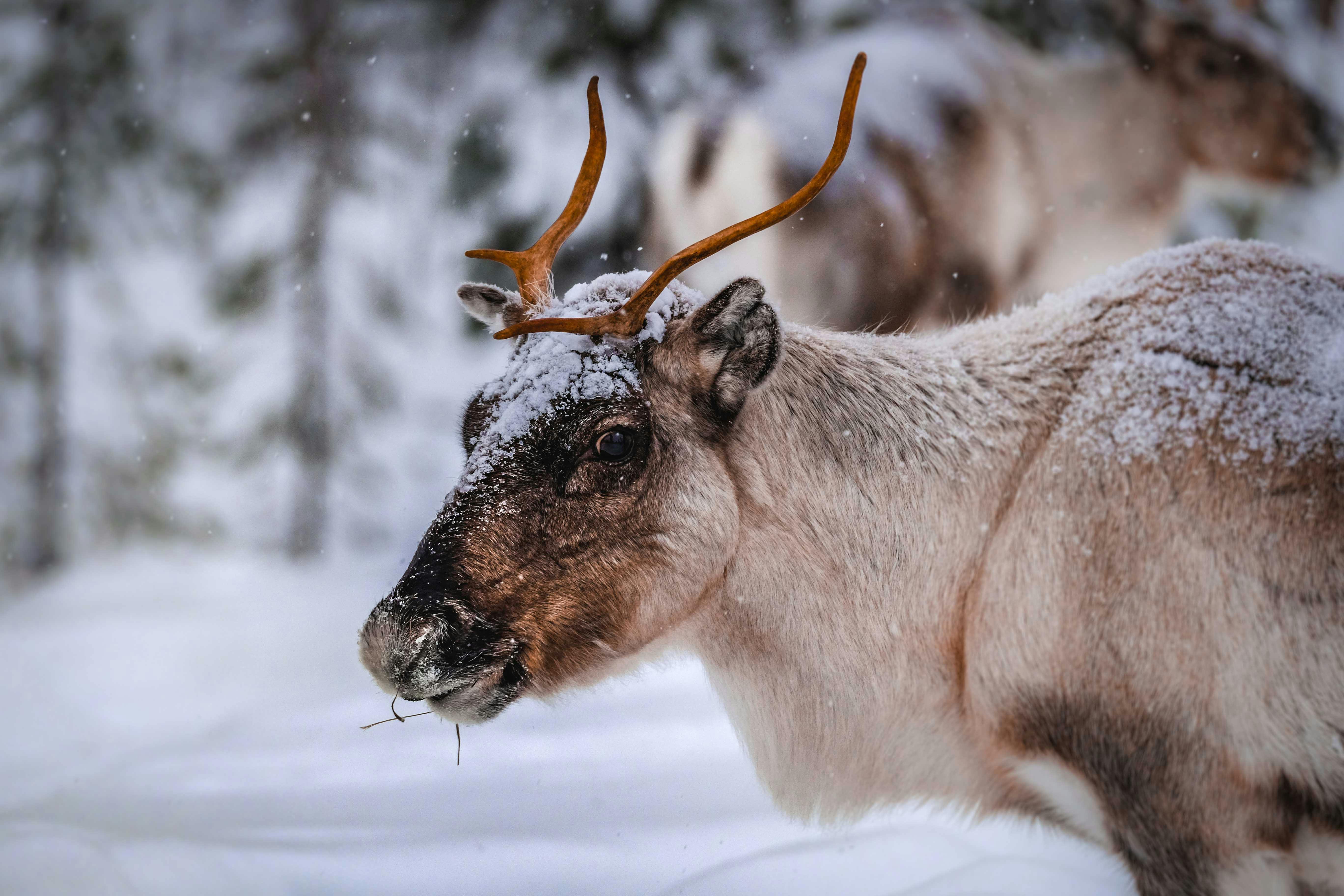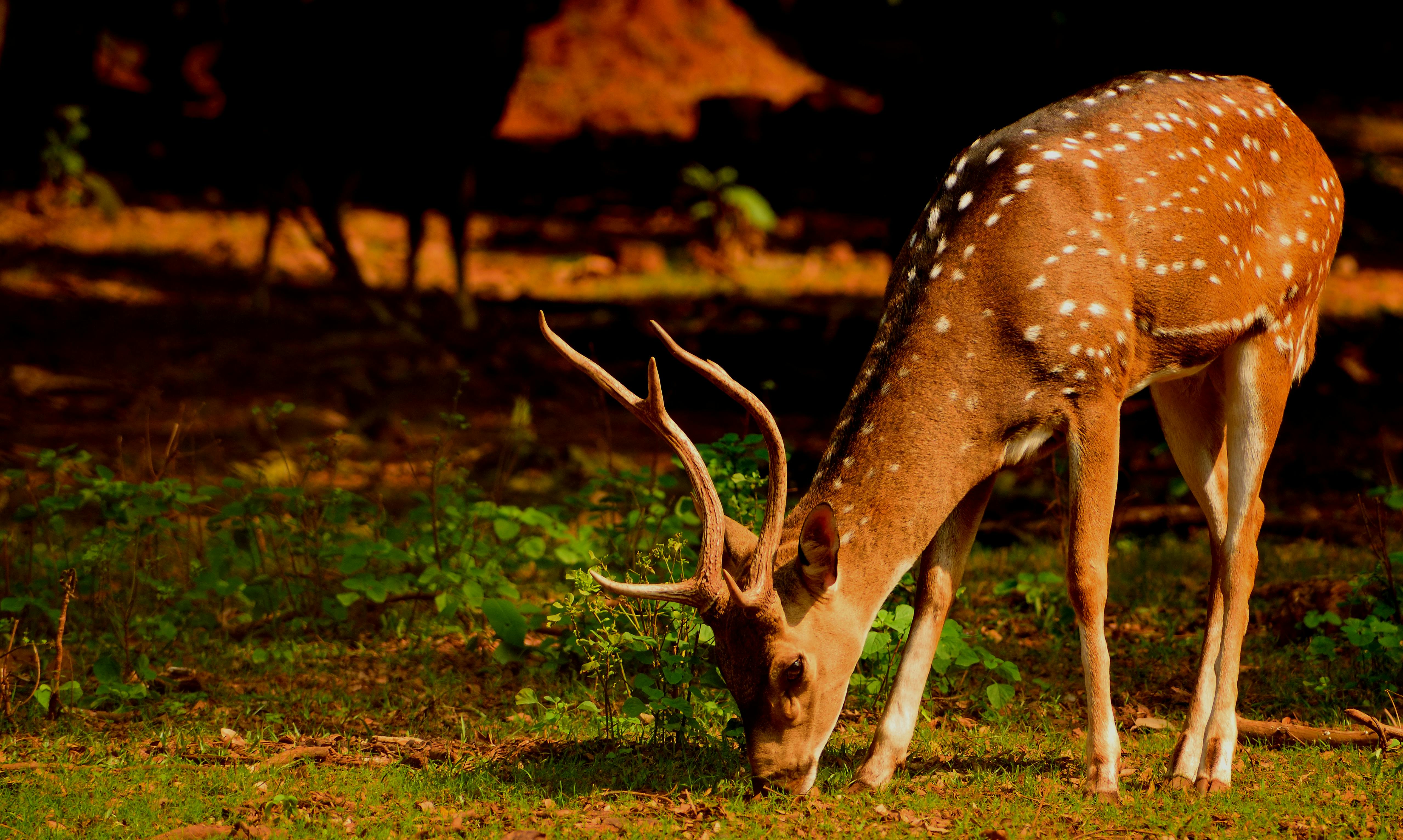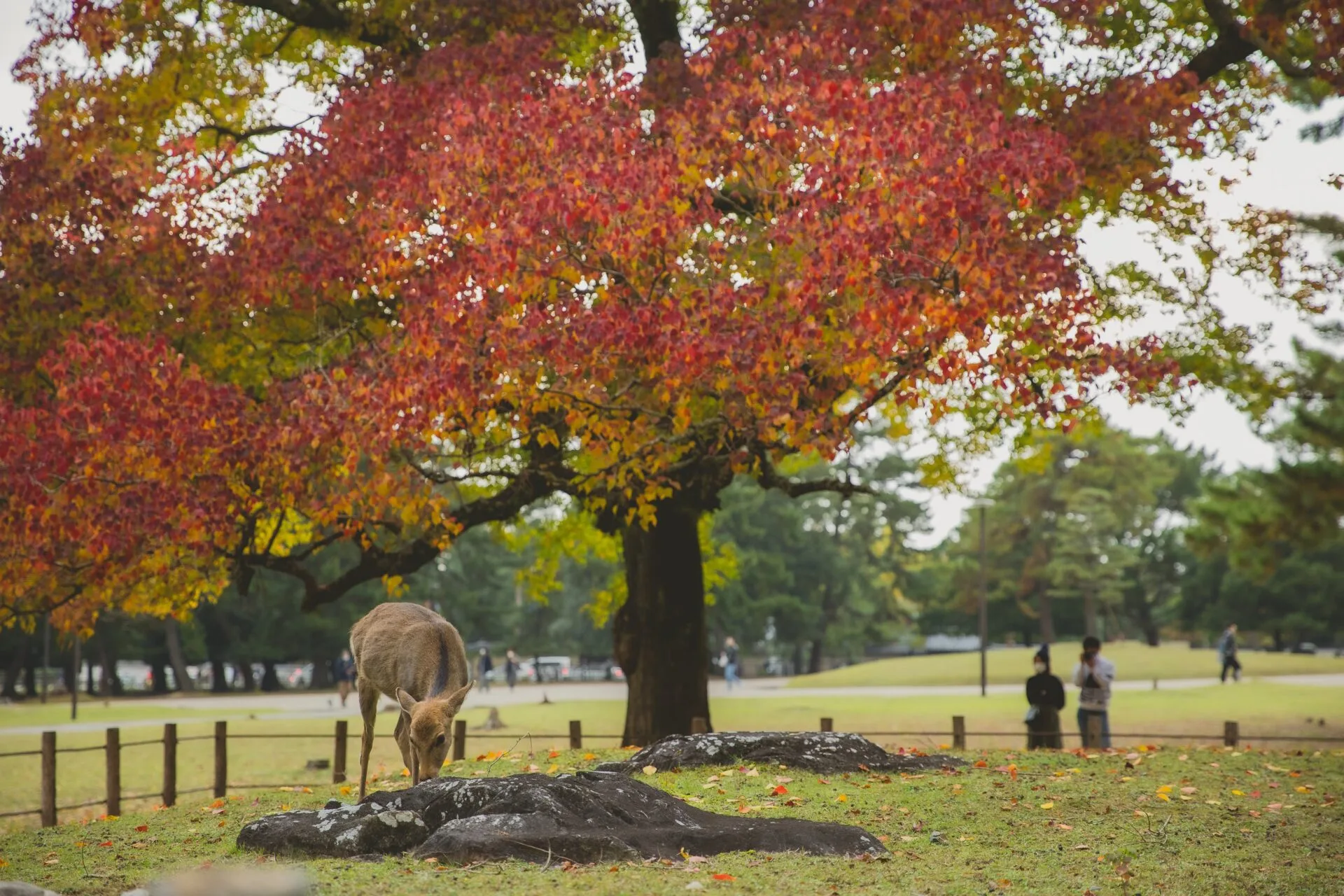Blueberries are a tasty treat enjoyed by many people. But do deer eat blueberries? Deer actually enjoy eating blueberries and can often be spotted in berry patches. In fact, deer consume a variety of different fruits and berries, including blueberries. This article will discuss what deer eat, the benefits of blueberries for deer, and how to attract deer to your property to enjoy their own berry patch.Yes, deer do eat blueberries.
What Do Deer Usually Eat?
Deer are herbivores, meaning they primarily eat vegetation. Wild deer typically forage for food in fields and forests, eating a variety of plants such as grasses, leaves, buds, twigs, bark, and shoots. They have also been known to consume fruits and nuts. To supplement their diet with much-needed nutrients and minerals, deer will also eat soil or lick salt blocks. During winter months when food is scarce, deer may even turn to scavenging and eating carcasses of other animals.
In addition to consuming plants and vegetation that grows naturally in the wild, deer will often seek out human-made sources of food. This can include crops planted in agricultural fields as well as backyard gardens or any other area where edible plants are available. Deer can also become accustomed to eating pet food or other snacks provided by humans.
Overall, the diet of a wild deer is highly dependent on its environment and availability of food sources. In some areas with more abundant vegetation or crops planted by humans, a deer’s diet may consist mainly of different types of plants while in other areas it may be more reliant on scavenging for carcasses or seeking out human-made sources of nourishment.
Blueberry Nutrition for Deer
Deer, like other animals, benefit from the nutrients found in blueberries. Blueberries are rich in vitamins, minerals and antioxidants that help deer stay healthy and active. They are also a rich source of fiber, which helps to support the digestive system. In addition, blueberries contain phytochemicals that can help to protect the deer from disease and injury. Furthermore, the berry is high in sugar content which provides energy for deer when food is scarce. All of these benefits make blueberries an ideal food for deer.
Deer have been known to eat blueberries in their natural environment for centuries, but now they can be found cultivated in many areas around the world. This makes it easy to provide a steady supply of this nutritious food to deer populations all year round. Blueberry bushes can be planted near areas where deer are known to roam or even planted directly in a deer’s habitat if desired.
Blueberries are also an ideal snack for hunters who are looking for something quick and nutritious while out on a hunt. The berry is easy to carry and can provide much-needed energy during long days of hunting or scouting. Additionally, their sweet taste makes them a favorite among hunters who are looking for something different than traditional snacks such as jerky or trail mix.
In conclusion, blueberry nutrition for deer is essential if you want them to stay healthy and active throughout the year. They provide essential vitamins, minerals and antioxidants as well as energy-boosting sugars that help keep them going during lean times. Blueberries can be easily cultivated near their habitats or taken along as snacks by hunters when out on hunts. Providing these nutritious berries to deer populations is an excellent way to ensure they remain healthy and strong throughout their lives!
The Benefits of Eating Blueberries for Deer
Deer are animals that can benefit greatly from eating blueberries, as they are packed with essential vitamins and minerals. Blueberries contain high levels of Vitamin C, which helps to keep deer healthy. They also contain other vitamins, such as Vitamin A, B6, and E, which are all important for the maintenance of a deer’s health. Additionally, blueberries have high levels of antioxidants which help to fight off free radicals that can damage a deer’s immune system.
Blueberries also contain dietary fibre, which is important for a deer’s digestive system. The dietary fibre helps to move food through the digestive tract more quickly and keeps the gut functioning properly. Blueberries also contain iron and calcium, which are both important for bone health in deer. Eating blueberries on a regular basis can help to ensure that deer remain strong and healthy.
Blueberries are also an excellent source of energy for deer. The natural sugars found in blueberries provide an energy boost, making them ideal for times when a deer needs an extra boost of energy to find food or flee from predators. Additionally, eating blueberries can help keep a deer’s metabolism running smoothly and ensure that they are able to find enough food throughout the day.
Overall, blueberries offer numerous benefits for deer when eaten as part of their regular diet. Not only do they provide essential vitamins and minerals that help keep a deer healthy, but they also provide an excellent source of energy and dietary fibre that keeps their digestive systems running smoothly. Eating blueberries on a regular basis can help ensure that your local population of deer remains healthy and strong for many years to come.
Is Eating Blueberries Good for Deer?
While deer may not prefer blueberries to other treats, they can certainly benefit from eating them. Blueberries contain many vitamins and nutrients that are beneficial for deer, including vitamins A, C, and K, as well as fiber, calcium, iron, and magnesium. In addition to providing a healthy snack for deer, blueberries can also help reduce the risk of certain diseases such as heart disease and diabetes. Eating blueberries can also help improve a deer’s overall health by boosting their immune system and aiding in digestion.
Deer are naturally drawn to sweet-tasting fruits and vegetables like blueberries. The smell of ripe blueberries is often enough to attract a herd of deer to the area. However, it is important to note that deer should not eat too many blueberries in one sitting as this could lead to digestive problems or even an upset stomach.
In addition to being good for the health of deer, blueberries can also provide an excellent source of food during the winter months when other food sources may be scarce. Deer will often feed on fallen berries during the winter months when other food sources are scarce. This helps keep them nourished until spring arrives and more plants become available for them to eat.
Overall, eating blueberries is a great way for deer to get essential vitamins and minerals while helping them stay healthy all year round. It is important to remember that while deer may enjoy eating this sweet treat, they should only do so in moderation as too much can lead to digestive problems or an upset stomach.

Does Eating Blueberries Affect the Health of Deer?
It is well known that deer have a varied diet, but can they benefit from eating blueberries? In recent years, researchers have looked into the potential benefits of deer consuming blueberries. While there is still much to be learned about this topic, early studies suggest that blueberries can have a positive effect on the health of deer.
One benefit of blueberries is that they are an excellent source of antioxidants. Antioxidants can help reduce inflammation and protect cells from damage caused by free radicals. These compounds may also help protect against disease and improve overall health in deer.
In addition to providing antioxidants, blueberries are a good source of vitamins and minerals. Vitamins A and C, as well as the mineral iron, are all found in blueberries in significant amounts. These nutrients are essential for deer health and can help support their immune system and other bodily functions.
Blueberry consumption may also be beneficial for digestive health in deer. The high fiber content of these fruits can help keep the digestive system running smoothly by promoting regular bowel movements. Additionally, some studies suggest that blueberries may have antimicrobial properties which can help keep harmful bacteria in check within the gut microbiome.
Finally, blueberry consumption may have a positive effect on weight management in deer. The natural sugar content in blueberries is considered to be low-glycemic which means it does not cause dramatic spikes in blood sugar levels after eating them. This could make them an ideal snack for helping to manage weight gain without compromising nutrition levels or energy levels for deer.
Overall, research suggests that eating blueberries may offer several health benefits to deer including improved immune function, better digestive health, and better weight management. While more research is needed to understand the full effects of these fruits on deer health, they appear to be a safe and nutritious addition to their diet overall.
Does the Availability of Blueberries Affect a Deer’s Diet?
The availability of blueberries can have a significant effect on a deer’s diet. The presence of blueberries can provide deer with an additional source of nutrition, which can be beneficial for their health. In addition, when blueberries are available, deer can feed on them for longer periods of time, thus allowing them to consume more nutrients throughout the season.
Blueberry-rich diets may provide deer with extra energy and help them to maintain their body condition during periods of low food availability. This is especially important during winter when there are fewer food sources available. Furthermore, eating blueberries can also help deer to stay hydrated and aid them in avoiding dehydration during the summer months when water is scarce.
Blueberry bushes are also known for being highly palatable to deer and providing a nutritious food source throughout the season. The presence of these bushes in an area may encourage deer to flock to the area in order to feast on the berries. Furthermore, because they are high in sugar content, they can provide deer with much-needed energy boosts during times when food sources are scarce.
In conclusion, the availability of blueberries does have an effect on a deer’s diet. Blueberries provide an additional source of nutrition that can be beneficial for their health and well-being. Furthermore, blueberry-rich diets may help to maintain body condition and energy levels during times when food sources are scarce or limited. Lastly, blueberry bushes may attract more deer to an area due to their palatability and high sugar content.
How Much of a Deer’s Diet Should Consist of Blueberries?
A deer’s diet should consist of a variety of plants, fruits, and vegetables. Blueberries can be a great addition to the diet of a deer, but it shouldn’t be the only thing they eat. Blueberries provide essential vitamins and minerals for deer, including Vitamin A and antioxidants. They are also a great source of fiber which helps to promote healthy digestion.
However, blueberries should not make up more than 10-15% of a deer’s diet. Too much sugar can be unhealthy for any animal, so it is important to limit the amount of blueberries a deer consumes. Additionally, blueberries should not be the only type of fruit or vegetable in the diet as variety is important for proper nutrition.
In order to provide your deer with an adequate amount of nutrition, it is important to provide them with other types of vegetation such as clover, grasses, and nuts. This will help ensure that they are getting the vitamins and minerals they need while limiting their exposure to too much sugar from blueberries.
Deer also need plenty of fresh water in order to stay hydrated and healthy. If water is not readily available in your area, you can provide them with a trough filled with clean water on a regular basis.
Overall, blueberries can be an excellent addition to a deer’s diet if consumed in moderation. To ensure that your deer gets all the essential nutrients it needs, make sure that you are providing them with other types of vegetation and access to fresh water on a regular basis.

Conclusion
It is clear that deer eat blueberries, but the extent of this behavior depends on the availability of other food sources and the specific species of deer. In some areas, deer may feed heavily on blueberries if other food sources are scarce. In other areas, they may enjoy them as an occasional snack. Regardless of the situation, it’s important to know that deer can and do eat blueberries. This knowledge can help people protect their crops or gardens from hungry wildlife.
Overall, it’s safe to say that while deer may not necessarily seek out blueberries as a main source of nutrition, they will gladly take advantage of them when given the opportunity. Additionally, depending on the area and species, wild deer may even be seen snacking on them regularly.



